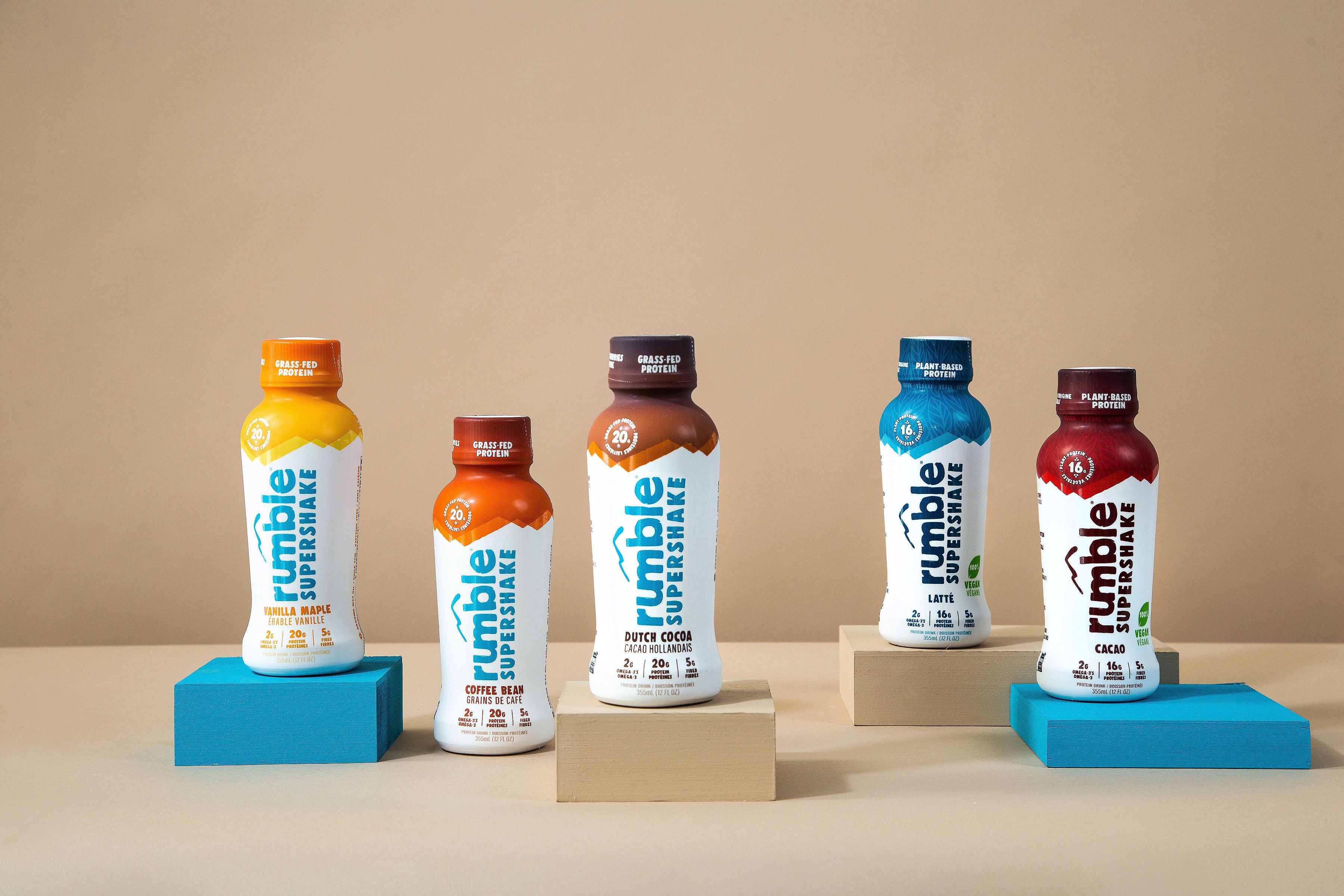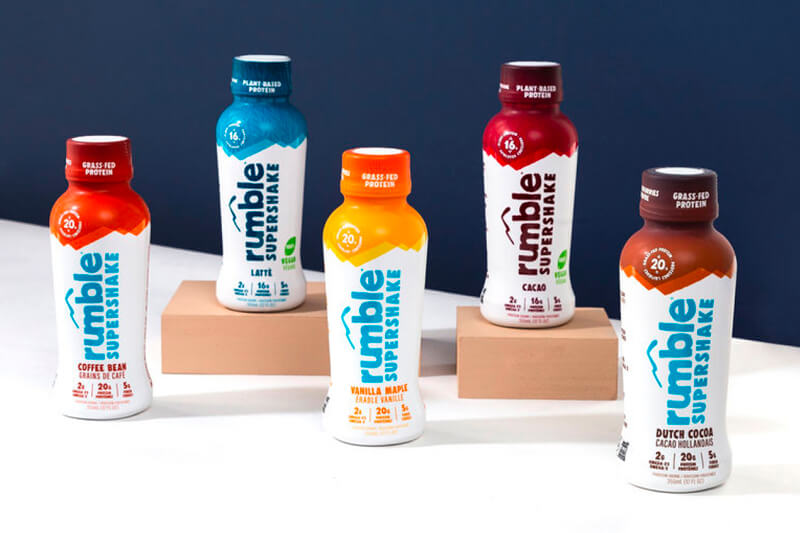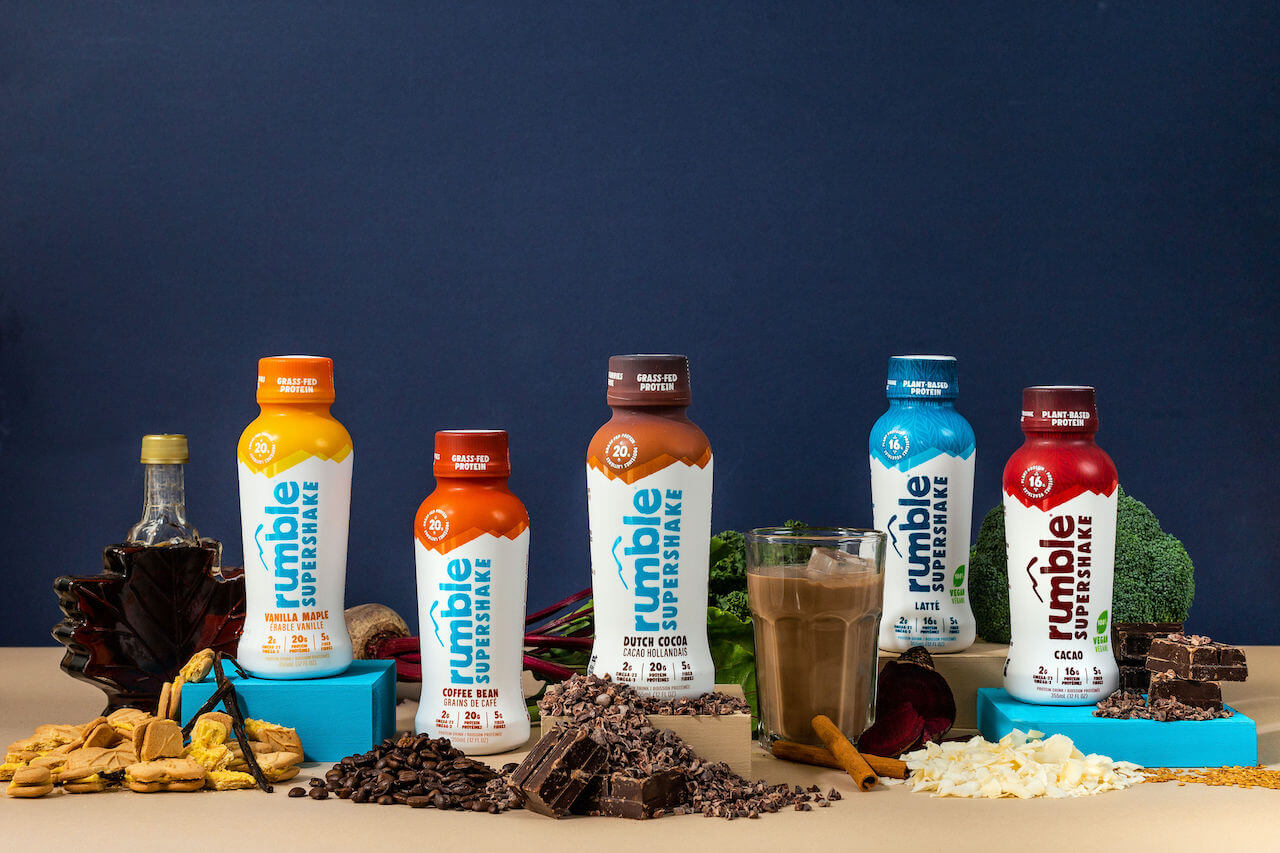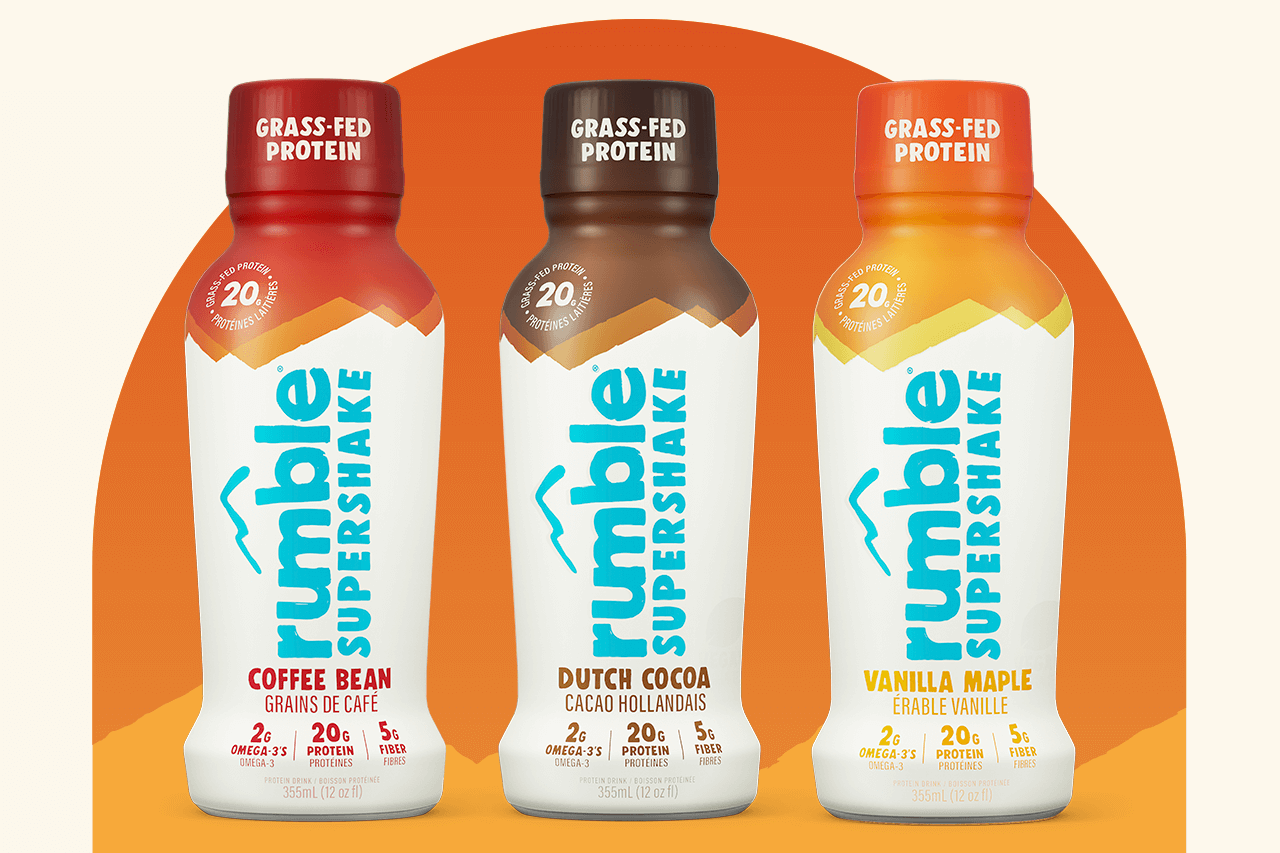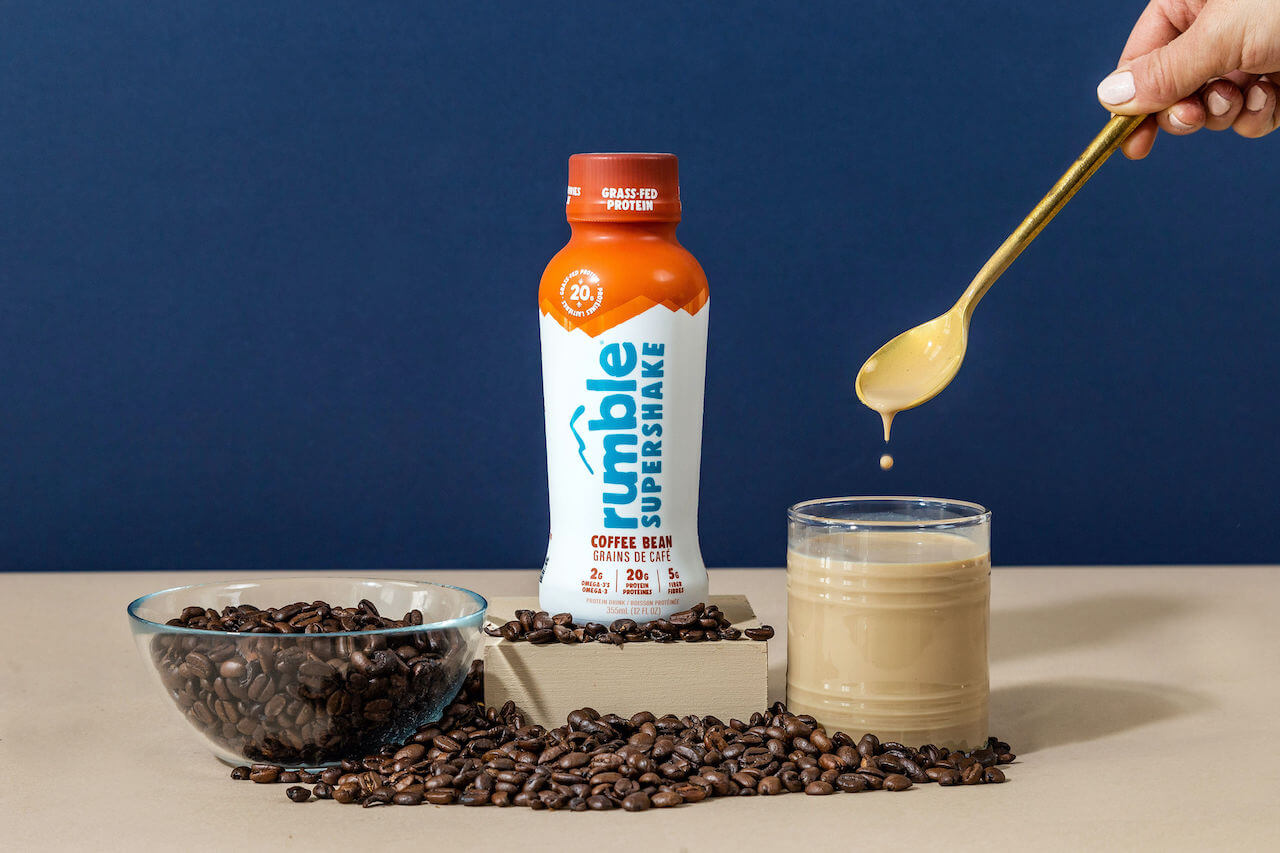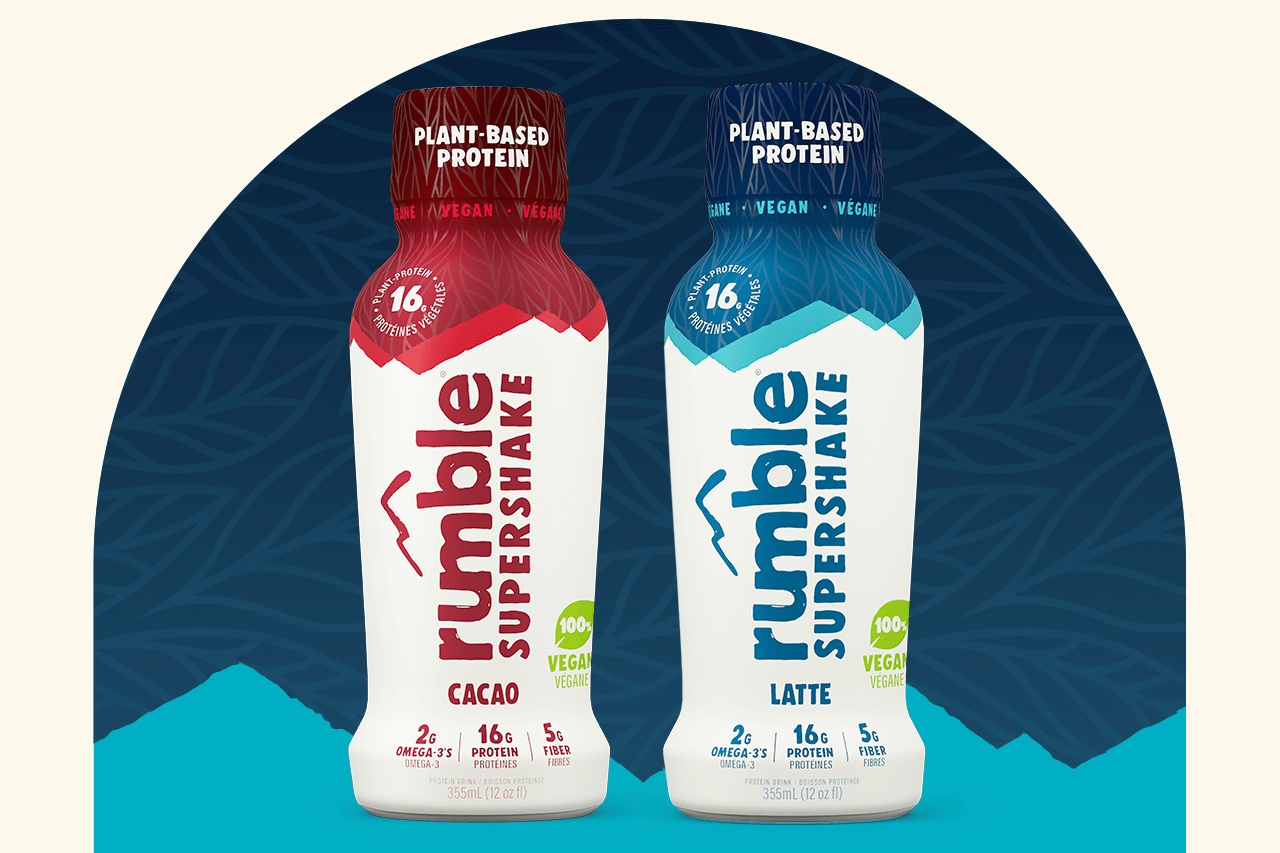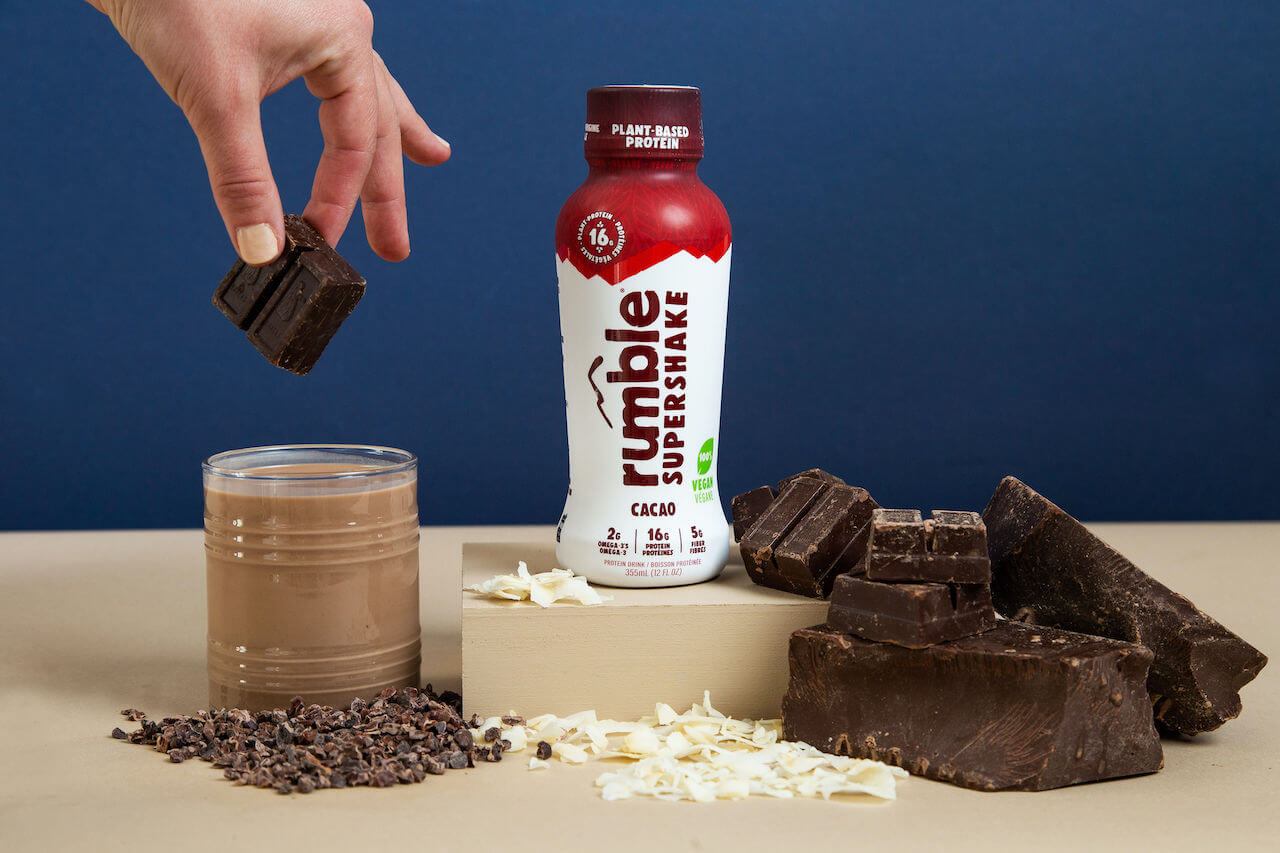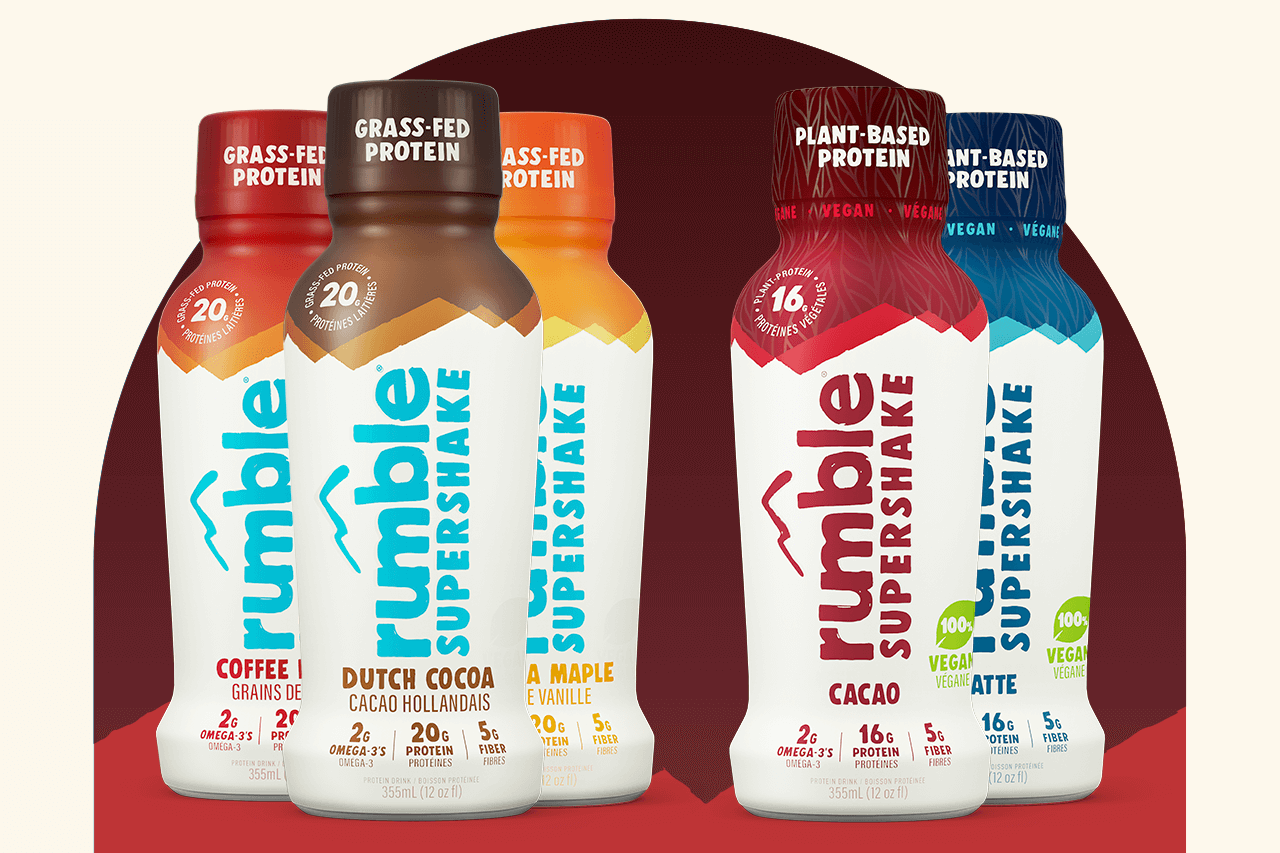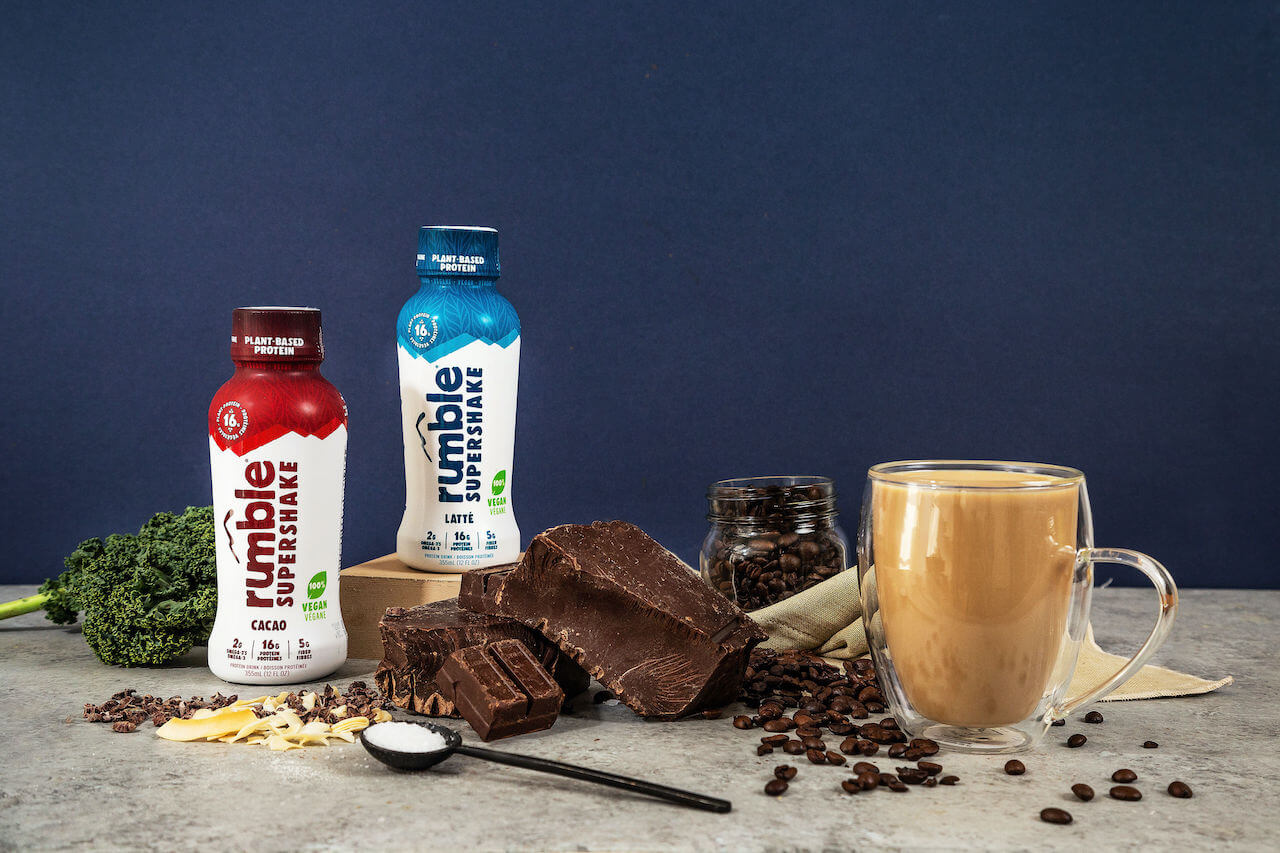How to Improve Your Eating Habits in a Pandemic: Advice from Dietitian Rachel Dickens

This is a weird year for New Year’s resolutions - with the holidays over and lockdown orders still in place, we have the time to work towards new goals, but not necessarily the supports.
We know by now that everything is a little bit harder in a pandemic, even maintaining a healthy diet.
Knowing where to start is the first step, so we reached out to Rumble Dietitian Rachel Dickens to share some wisdom for gentle, sustainable changes that we can make together to improve our nutrition.
Q: Do you make New Year’s resolutions for yourself?
A: I have been inspired by other Dietitians to be extra mindful about the language I use around food, and how using the wrong language on my instagram or blog could be contributing to readers having an unhealthy relationship with food.
For example, I used to use the term ‘clean eating’ to refer to choosing whole-foods over processed foods. What I came to realize is that using language like ‘clean eating’ is not only confusing - (“Is sugar bad? Can I eat dairy? Is gluten allowed? What about coffee?”) but also plays into the mentality that we need a structured belief system or set of rules to define ourselves and the way we eat.
“Clean eating” implies that anything in opposition to ‘clean’ is ‘dirty’, and that if/when we eat the foods that contain sugar or dairy, we should feel shame and guilt. This can contribute to disordered eating habits, and invite discrimination towards others who may not have the means or desire to eat a certain way.
Now, I think it’s important to emphasize that how we eat, and who we eat with, plays just as large a role in a healthy diet as what we put in our mouths. As I’ve said in the past, eating with family and friends helps to build community, brings people together, and creates a supportive environment around food. Building off this, in 2021 my New Year’s Resolution is to promote building a healthy relationship with food, through inclusivity and celebrating diversity.
I look forward to sharing more meals with friends and family soon!

Q: How did 2020 affect your diet?
A: 2020 was a difficult year for so many, and we witnessed the closure of many beloved restaurants and small businesses. I live in Tofino, but when I lived in Victoria, I was able to access a CSA (Community Supported Agriculture) box from Little Mountain Farm. They delivered produce to my home every week, which helped to ensure that I was always eating in season, eating local, and getting the best quality fruits and vegetables from a biodynamic farm.
During the initial lockdown, I began to access produce and groceries from the Tofino Ucluelet Culinary Guild (TUCG). I became familiar with them through my work; TUCG offered a ‘give a box’ donated produce box option which you could add to your shopping cart, and this often went to one of the local First Nation communities I worked in. Customers could purchase themselves a curated box, and donate one as well.
During the pandemic TUCG started working with some of the local food producers and restaurants in the area to offer some familiar favourites while the businesses were forced to temporarily shut their doors. I became more aware of the importance of supporting local business when possible, since a healthy community relies on small businesses and local employment.
So throughout 2020, I continued to try to source as much as I could from smaller businesses: I recently discovered a Tofu made on Salt Spring Island, I love the Tempeh made in Victoria, Tofino has amazing chocolate, Ucluelet my favourite coffee and TUCG just started offering hazelnuts grown in the Fraser Valley, which rocked my world!
Q: How do you maintain good eating habits when you’re short on time or stressed?
A: When I know I am going to have a busy week, I like to batch-make meals that I can eat for a few meals in a row. One of my current winter favourites is this 1-Pan Baked Vegetable Tray, which I like to call an un-recipe. I love roasting a batch of vegetables, making a big pot of quinoa or brown rice, and topping it with whatever protein I have in the pantry or fridge (chickpeas, tempeh or tofu are my go-tos). Of course it is all about the sauce, and my favourite is this White Water Cooks Glory Bowl inspired dressing. You can make a big batch of it and keep it in the fridge for up to a week.
Sometimes life can be unpredictable. As much as I would love to be able to make everything from scratch myself, I do have a few go-to convenience foods that I gravitate towards. I find that especially in the winter months, with the shorter days, trying to balance work with exercise/outdoor time can be challenging!
Rumble is my go-to if I want to make it out for any early morning surf, since it is nice and light on the stomach and just the right amount of energy to not make me feel too full, or leave me hungry (plus the coffee is a bonus!).
When I am on the ski hill I like to keep a healthy bar in my pocket - a current favourite is Rx bar. I try to look for packaged foods that use minimal ingredients, and don’t include any ‘fillers’, which I see as a cheap calorie source to bulk out the product (ie low-quality vegetable oils, and refined grains).
Stress affects everyone so differently. Some people lose their appetite, while others tend towards foods that will give a quick energy hit such as refined carbohydrates or sugar. I think that it is important for people to remember that it is OK to look towards comfort foods when stressed in the short-term or in response to more acute forms of stress. If the stress is chronic, then coping with food for the long-term can have detrimental effects on our health. If this is the case, then it is important to reach out to a qualified professional who can help you through this.
For myself, when I am stressed I allow myself what my body is craving, whether it be dark chocolate, or familiar comfort foods. I do try to remind myself that what is going to really make me feel better in the long run is getting outside and/or exercising, and it works! Though the initial motivation is sometimes hard to access when you're not feeling your best, nature and the production of endorphins through exercise really is the best medicine.

Q: What are some sustainable things we can all do for a healthier diet?
1. Don’t fall into the trap of a new trend diet or restrictive eating. The secret to healthy eating is not a secret! Eat more plants and fibre-rich foods. Any diet you look at has this in common - they all encourage lots of vegetables, fibre and plenty of exercise. Healthy eating shouldn’t be about restriction - instead, try to look at healthy eating as ensuring you’re getting enough of the good stuff - fruits, vegetables, legumes to start!
2. Aim for ½ plate of vegetables at lunch and dinner. This is old news, but it works! Filling up on a variety of different plant fibres is key. Not only does fibre help keep us full, but it feeds the diverse microbiome in our guy, which can help protect us against things like insulin resistance. I generally try to encourage people to aim for at least 30 different plant-varieties per week. A roast veggie bowl with quinoa, sweet potato, cauliflower and chickpeas with a garlic- and tahini-based dressing would count as 6 plant-varieties.
3. Clean out your pantry. They say it is easier to say no once in the grocery store, then 100 times at home. If I have chocolate in the cupboard, I am going to eat it - it’s just human nature! Try not to keep tempting foods in your house, and purchase them just when you need or really want them.
4. Support local growers or producers when you can. Vancouver Island is full of passionate farmers and producers. We can purchase locally grown tea, legumes, flour, fruits, vegetables, as well as yogurt and seafood from Vancouver Island. Know where your food comes from, so you can more easily track if producers share your same values in terms of growing methods and quality.

Q: How can we keep a chill attitude towards food this year?
A: Food is an important part of a healthy lifestyle, but it is only one part. If you are juggling working from home and a young family, or you work in healthcare and are feeling the pressure, or you’re just not in a place right now to make food and cooking a big focus in your life - that’s okay!
Do your best, and try to make healthy choices most of the time. Choose vegetable-heavy dishes when you have the option, and try to eat more plant-based proteins such as beans, lentils or chickpeas.
I do think it is important to recognize that our view of health should not be limited to just healthy eating. Getting outside in nature, moving our bodies, reducing sedentary time, and participating in activities that promote mental wellness are all important aspects of health that are often overlooked! Focus your energy on what feels right for your body in the moment. Set yourself short-term goals and don’t stress about the other stuff right now. Whatever you can do is good enough.
Follow Rachel on Instagram for more recipes and tips: @theconsciousdietitian


